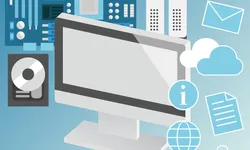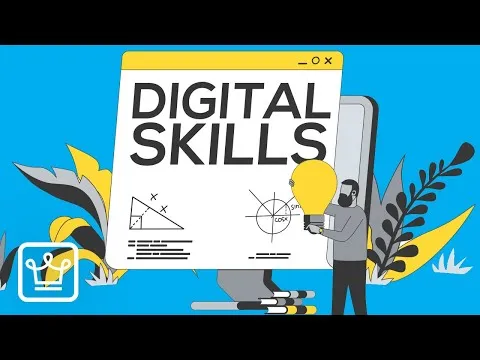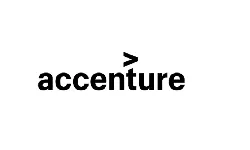
Computer Hardware and Software 
This course introduces students to the fundamentals of computer hardware and software. It covers topics such as IT, hardware components, mobile devices, operating systems, programs and apps, network fundamentals, the Internet, security and ethics. Students will gain a foundational understanding of how computers process information. ▼
ADVERTISEMENT
Course Feature
![]() Cost:
Cost:
Free
![]() Provider:
Provider:
Coursera
![]() Certificate:
Certificate:
Paid Certification
![]() Language:
Language:
English
![]() Start Date:
Start Date:
29th May, 2023
Course Overview
❗The content presented here is sourced directly from Coursera platform. For comprehensive course details, including enrollment information, simply click on the 'Go to class' link on our website.
Updated in [March 20th, 2023]
Computer Hardware: Learners can gain an understanding of the physical components of a computer, such as the motherboard, processor, memory, storage, and peripherals. They can also learn about the different types of mobile devices and their components.
Software: Learners can explore the different types of operating systems, such as Windows, Mac OS, and Linux, and learn how to install and configure them. They can also learn about the different types of programs and apps, such as word processors, spreadsheets, and web browsers, and how to use them.
Networks: Learners can gain an understanding of the fundamentals of computer networks, such as the different types of networks, network topologies, and network protocols. They can also learn about the Internet, including its history, structure, and services.
Security and Ethics: Learners can learn about the importance of computer security and the different types of security measures, such as firewalls and encryption. They can also explore the ethical implications of using computers and the Internet, such as privacy, intellectual property, and cybercrime.
[Applications]
This course provides a great foundation for those interested in pursuing a career in Information Technology. After completing this course, students should be able to identify and explain the components of a computer system, understand the basics of operating systems, and be familiar with the fundamentals of networking and security. Additionally, students should be able to apply their knowledge to troubleshoot and diagnose computer hardware and software issues. Furthermore, students should be able to use their knowledge to create and maintain a secure network.
[Career Paths]
1. Computer Programmer: Computer programmers write code to create software programs, and they also update and expand existing programs. They must be able to work with a variety of programming languages, such as C++, Java, and Python. As technology advances, the demand for computer programmers is expected to increase.
2. Network Administrator: Network administrators are responsible for maintaining and managing computer networks. They must be able to troubleshoot network issues, configure hardware and software, and ensure that the network is secure. With the increasing reliance on technology, the demand for network administrators is expected to grow.
3. Database Administrator: Database administrators are responsible for designing, implementing, and maintaining databases. They must be able to work with a variety of database management systems, such as Oracle and SQL Server. As businesses become more reliant on data, the demand for database administrators is expected to increase.
4. Cybersecurity Analyst: Cybersecurity analysts are responsible for protecting computer networks and systems from cyber attacks. They must be able to identify potential threats and vulnerabilities, and develop strategies to protect networks and systems. With the increasing number of cyber attacks, the demand for cybersecurity analysts is expected to grow.
[Education Paths]
1. Computer Science Degree: A computer science degree provides a comprehensive understanding of the principles and practices of computer science, including programming, software engineering, computer architecture, and operating systems. This degree is ideal for those interested in developing and designing computer systems, as well as those interested in pursuing a career in software engineering or computer programming. Developing trends in this field include the use of artificial intelligence, machine learning, and cloud computing.
2. Information Technology Degree: An information technology degree provides a comprehensive understanding of the principles and practices of information technology, including computer networks, database management, system security, and software development. This degree is ideal for those interested in pursuing a career in IT management, system administration, or network engineering. Developing trends in this field include the use of big data, cloud computing, and the Internet of Things.
3. Cybersecurity Degree: A cybersecurity degree provides a comprehensive understanding of the principles and practices of cybersecurity, including network security, cryptography, malware analysis, and digital forensics. This degree is ideal for those interested in pursuing a career in cybersecurity, such as a security analyst or security engineer. Developing trends in this field include the use of artificial intelligence, machine learning, and blockchain technology.
4. Computer Engineering Degree: A computer engineering degree provides a comprehensive understanding of the principles and practices of computer engineering, including computer architecture, embedded systems, and computer networks. This degree is ideal for those interested in pursuing a career in computer engineering, such as a hardware engineer or software engineer. Developing trends in this field include the use of artificial intelligence, machine learning, and quantum computing.
Pros & Cons

Comprehensive course with good assessment structure

Very good explained course

Helps to gain knowledge

Effective for knowledge

Out of date

Not enough information

Long wait for certificate

Doubles time spent for course
Course Provider

Provider Coursera's Stats at AZClass
Discussion and Reviews
0.0 (Based on 0 reviews)
Explore Similar Online Courses

How To Embroider Viola Flower

SAP ERP: Beyond the Basics

Python for Informatics: Exploring Information

Social Network Analysis

Introduction to Systematic Review and Meta-Analysis

The Analytics Edge

DCO042 - Python For Informatics

Causal Diagrams: Draw Your Assumptions Before Your Conclusions

Whole genome sequencing of bacterial genomes - tools and applications

15 Digital Skills To Learn In 2022

Digital Literacy and Online Safety

Understanding Technology and Data
 Related Categories
Related Categories
 Popular Providers
Popular Providers
Quiz
 Submitted Sucessfully
Submitted Sucessfully
1. What is the purpose of an operating system?
2. What is the most common type of computer network?
3. What is the purpose of a firewall?


Start your review of Computer Hardware and Software